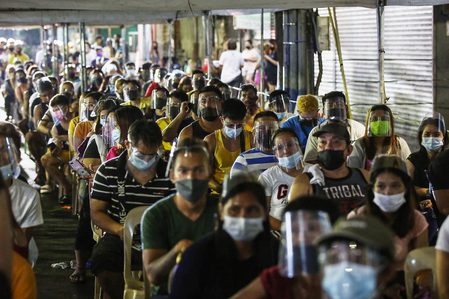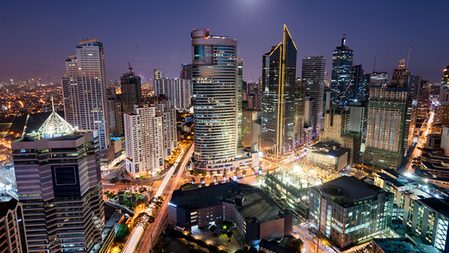SUMMARY
This is AI generated summarization, which may have errors. For context, always refer to the full article.

The Philippines has just gotten a slap on the wrist from credit rating agency Fitch Ratings, as the government struggles to contain the spread of COVID-19.
Fitch on Monday, July 12, revised its outlook on the Philippines from stable to negative, but maintained the country’s BBB rating, which is one notch above investment grade.
The question now is, will that affect the everyday Filipino? “Nakakain ba ang credit ratings?” (Can credit ratings be eaten?)
ING Bank Manila senior economist Nicholas Mapa said on Tuesday, July 13, that yes, a lower credit rating will have an impact on Filipinos’ budget and lifestyle.
“Yes, you can [‘eat it’], in the sense that it leads to lower borrowing costs, and the savings on that interest cost goes a long way and can be used for more productive needs,” Mapa said in an interview with One News’ BusinessWorld Live.
“A full downgrade will result in higher borrowing cost and that will channel some money from more productive means to simply paying higher interest costs,” he added.
Mapa added that the Philippines will likely need to borrow even more amid falling revenues and growing expenses as it deals with the worst health crisis in recent history. Rising interest rates would mean that borrowing would be more costly in the near future.
President Rodrigo Duterte’s economic team has kept spending conservative to protect the country’s investment grade rating.
At the same time, Duterte is spending more for infrastructure projects in a bid to induce a trickle-down effect, where money is spent on big projects, while assuming that these projects would reach the poorest of society.
This strategy is why the team was cold to the proposed Bayanihan to Arise as One Act or Bayanihan 3, despite the Bayanihan to Recover as One Act or Bayanihan 2 lapsing with billions of pesos unspent.
Mapa, however, disagrees with the government’s strategy, noting that money should be placed directly in Filipinos’ pockets to revive consumer spending.
Former Bangko Sentral ng Pilipinas deputy governor Diwa Guinigundo wrote a similar piece on credit ratings’ impact on people last July 1.
In his Manila Bulletin piece, Guinigundo noted that since the country got its first investment grade status in 2011 during the term of then-president Benigno Aquino III, the economy has grown and more jobs have become available.
Fitch moved the Philippines up from BB+ in June 2011 to BBB- in March 2013. It reached a BBB rating upgrade in December 2017.
The other big credit rating agencies like Moody’s Investors Service and Standard and Poor’s also upgraded the Philippines multiple times during the Aquino administration.
“PNoy did his homework and delivered on his campaign promises on the economic front. Both the government and private firms proved that good credit ratings can be eaten. His bosses rejoiced,” Guinigundo said.
Risks
Fitch’s Sagarika Chandra, director of Asia-Pacific sovereigns, explained that Monday’s revision was primarily due to the uncertainties brought about by the pandemic.
While Fitch affirmed the BBB rating, mainly due to the Philippine economy’s strength going into the pandemic, erosion has occurred.
“There were certain buffers that [the Philippines] had going into the crisis, but those buffers have been eroded and there’s still uncertainty about the evolution of pandemic and that’s hitting, in our view, the medium-term growth prospects,” Chandra said in an interview on ANC.
Markets
The local stock market reacted negatively to the news, with the benchmark Philippine Stock Exchange index falling 1.7% on Tuesday. All subindices sank into the red, and properties and holding firms fell harder by 2%.
“The downward revision reflects increasing risks to the credit profile from the impact of the pandemic and its aftermath on policy-making as well as on economic and fiscal outturns,” said Luis Limlingan of Regina Capital.
“The negative outlook means Fitch may downgrade the Philippines’ credit rating if it reverses reforms or departs from the prudent macroeconomic policy framework that leads to continued higher fiscal deficits. A weaker macroeconomic outlook over the medium term and diminishing policy credibility may also lead to a downgrade.” – Rappler.com
Add a comment
How does this make you feel?



There are no comments yet. Add your comment to start the conversation.